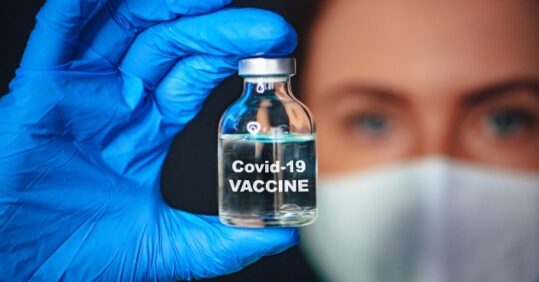Practices warned not to give Covid vaccine to patients with ‘significant’ allergic reactions

Practices should check with patients if they have previously suffered significant allergic reactions before administering the Pfizer Covid vaccine, under temporary guidance issued today.
This follows two incidents reported under the MHRA’s yellow card scheme yesterday, the first day of vaccinations against Covid-19 in England.
Nursing in Practice‘s sister publication Pulse has asked MHRA for their full advice to health professionals in light of the incidents.
Related Article: New digital support for community nurses in 10-year plan
But a statement issued by Pfizer said it has ‘been advised by MHRA of two yellow card reports that may be associated with allergic reaction due to administration of the COVID-19 BNT162b2 vaccine’.
It added: ‘As a precautionary measure, the MHRA has issued temporary guidance to the NHS while it conducts an investigation in order to fully understand each case and its causes. Pfizer and BioNTech are supporting the MHRA in the investigation.’
MHRA chief executive Dr June Raine told MPs on the House of Commons health and social care committee this morning that ‘last evening we were looking at two case reports of allergic reactions’ to the Covid vaccine.
She said that ‘from the very extensive clinical trials that this wasn’t a feature’, but added that ‘now that we’ve had this experience in the vulnerable populations – the groups that have been selected as a priority – we [will] get that advice to the field immediately’.
Related Article: Nurse had to ‘freeze’ PPE during pandemic to re-use in care home, Covid inquiry hears
She stressed that the MHRA’s job does not stop ‘at the point of approving’ the vaccine, but there is ‘a proactive plan to monitor those benefits and risks in clinical use’.
She said: ‘The role is before, during and after and there is a true end to end – looking from the scientific laboratory bench through to the patient who yesterday first received the vaccine.’
The MHRA approved the Covid vaccine developed by Pfizer and BioNTech last week (2 December) after final-stage trials had shown it was effective and ‘well tolerated across all populations’ with ‘no serious safety concerns observed’.
Related Article: Tell us what practice nursing means to you and potentially win £1,000
Pfizer’s statement added: ‘‘In the pivotal phase 3 clinical trial, this vaccine was generally well tolerated with no serious safety concerns reported by the independent Data Monitoring Committee. The trial has enrolled over 44,000 participants to date, over 42,000 of whom have received a second vaccination.’
Around 50 hospital hubs have begun vaccinating the first risk groups this week, with the first GP sites to follow next week.

See how our symptom tool can help you make better sense of patient presentations
Click here to search a symptom




